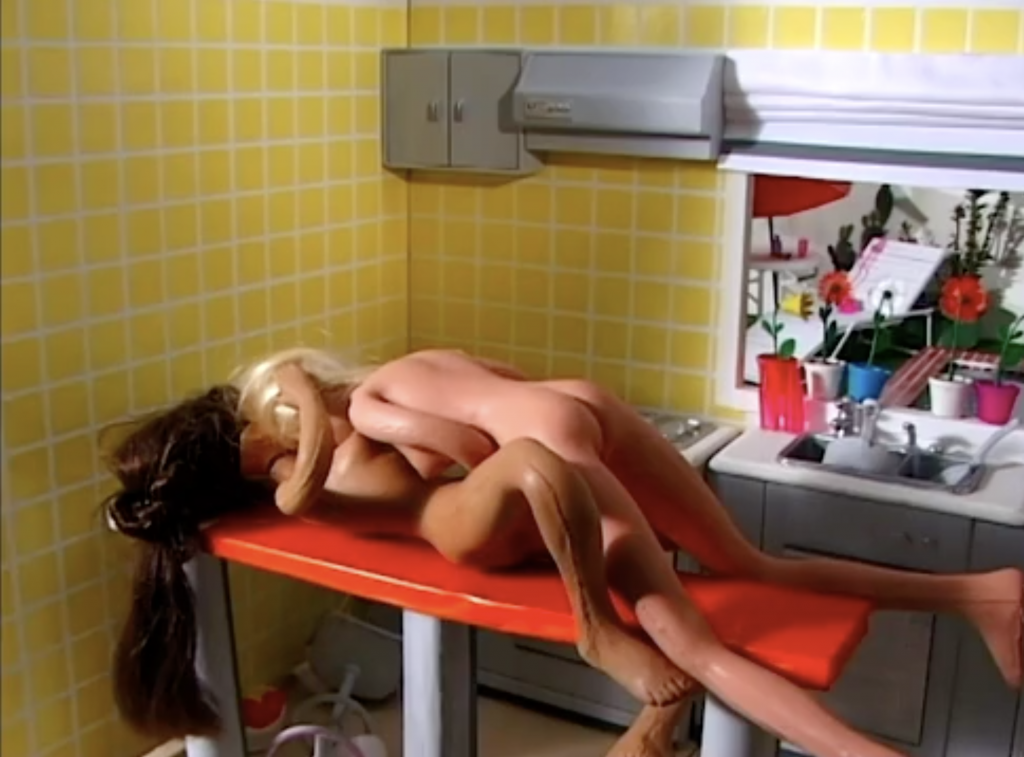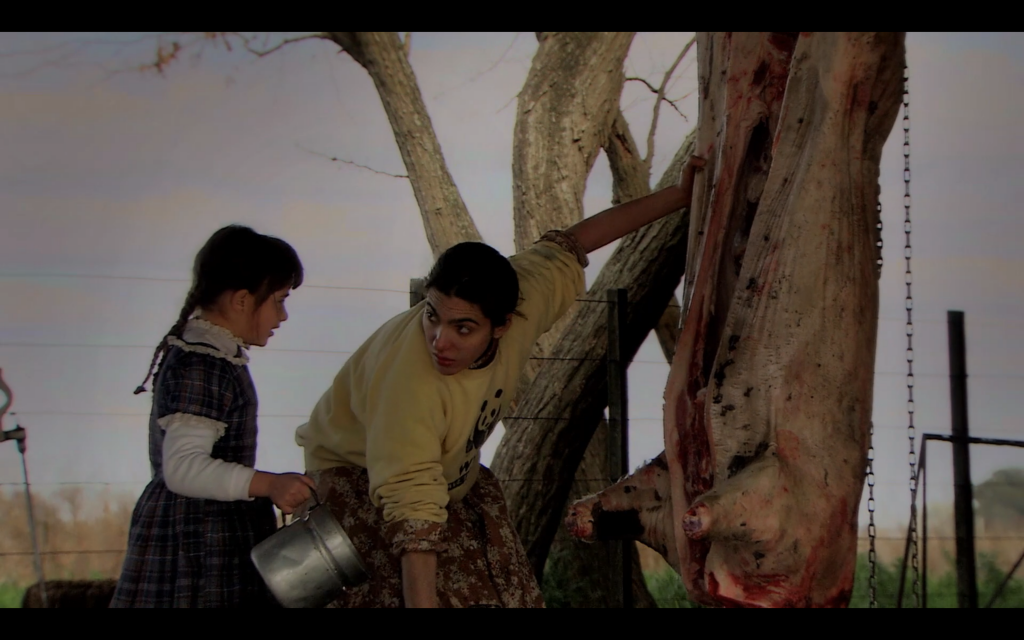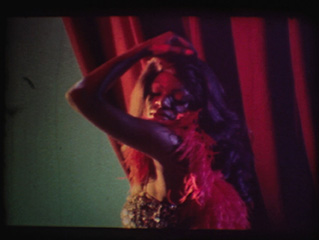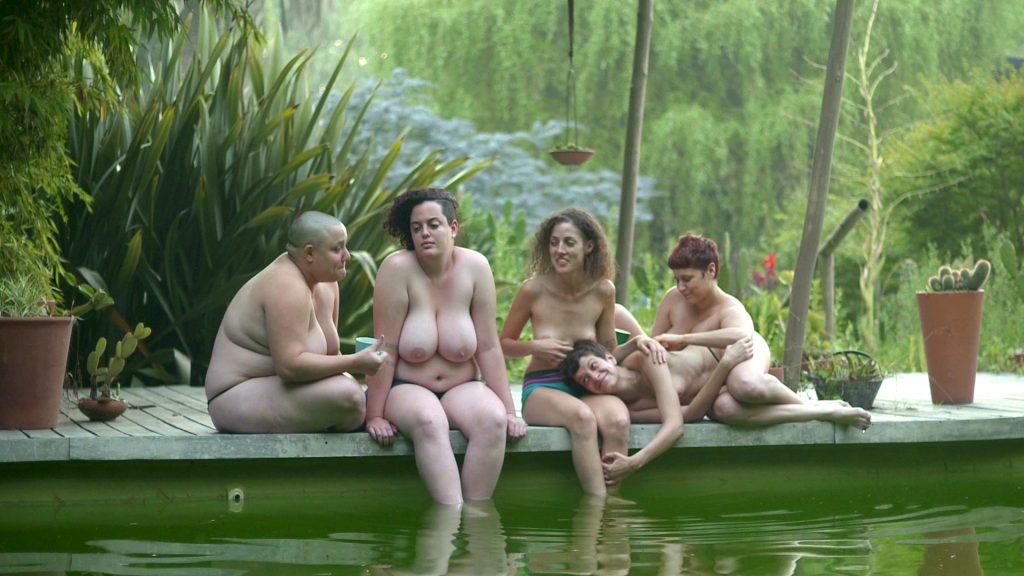ALBERTINA CARRI
Albertina Carri is an Argentinean artist, activist, producer, scriptwriter and director, in continuous exploration of her own languages and ways of showing everything that the dominant gazes pretend to leave out of the field.
A free woman who has worked tirelessly to become one and who needs to dismantle all the tools, all the visions and all the structures through which we organise ourselves politically, socially and individually in order to analyse and reconstruct them on the basis of everything that has never been at the centre of the narratives. And just as she does it in filming, she does it in her life. In Carri’s case, both spaces, cinema and reality, link, merge and complement each other in an organic way to become a healing ointment on which to confront the wound of emptiness, absence and non-conformity.
Trained as a scriptwriter at the Universidad del Cine (FUC) in Buenos Aires, she has made more than half a dozen short films, such as Excursiones, Aurora, Historias de Argentina en vivo and Barbie también puede estar triste (all in 2002), Fama (2003), De vuelta (2004) and Restos (2010), among many others. In them, in addition to exposing and delving into the themes that interest him, he explores tools that he will later develop more extensively in his feature films, such as animation or the recovery of discarded film archives.
After her first feature film, No quiero volver a casa (2000), selected at the Rotterdam, London and Vienna festivals, Carri began a journey in search of what was never there: her father and mother, Roberto and Ana María, intellectuals and activists who were kidnapped by the military dictatorship in 1977 and disappeared when she was barely four years old. Her second feature film, Los rubios (2003), proposes a new way of narrating and representing the victims of state terrorism by appealing to memories, through multiple fragments, stories, images or even dolls, with which she reflects on memory and its changing and polyhedral nature, and where beyond achieving an answer that helps to reconstruct history, her real objective is to question the past in order to build her present and another possible future. This journey was revisited in 2017 with the fascinating Cuatreros. A hypnotic and intense film that represents an adult approach to the same search and the same era, but through other stories and protagonists, and reaching the same conclusions, but with an even more conciliatory look at the figure of her own father and mother, and above all, with herself.
Alongside this journey to understand their absences, there is a strong presence of sexuality as a space of freedom and autonomy in the face of norms, patterns and normative behaviours. Both in Géminis (2005) and La rabia (2008), the sexual charge in the plots is central to the development of the narrative and to the definition of the characters, whose relationship with an apparently perfect society explodes when they come into contact with it. But it is in Las hijas del fuego (2018) where she reaches the maximum connection between sexuality, cinema, freedom, politics and feminism. As she herself describes and insists, this is lesbofeminist pornography that pursues the reconfiguration of gender (in a multitude of possible meanings) and, above all, the possibility of reconstructing the way of showing female jouissance away from the male gaze that only craves its eroticisation. An experience that transcends the filmic to become an experience shared with the protagonists, who participate in the film’s own decision-making and in how to show what has not been shown until now.
In addition to film, she has also created with Marta Dillon several programmes for television: La bella tarea, a documentary series with different points of view about women’s pregnancy and childbirth; Visibles, a documentary format about the LGTBI+ reality in Argentina; and the fiction 23 pares. She has also founded the International LGTBI+ Film Festival Asterisco.
Her way of understanding and creating cinema, so closely linked to how she understands and faces life, provides us with a clear conclusion: Carri’s absolute belief that the personal is political and the intimate is social, something that was reaffirmed when she managed to make her son the first person in Argentina to be officially recognised as having triple filiation.
Albertina Carri exposes herself and transforms this intimate and personal search into a discourse that goes far beyond the individual, offering new perspectives from which to observe reality, question it and reconstruct it. Her restless, curious, reflexive and tenacious gaze has led her to create a surprising and identifiable formal and visual universe that makes her, beyond any doubt, one of the most influential voices of a whole new generation of Latin American female creators.

 ES
ES EUS
EUS







